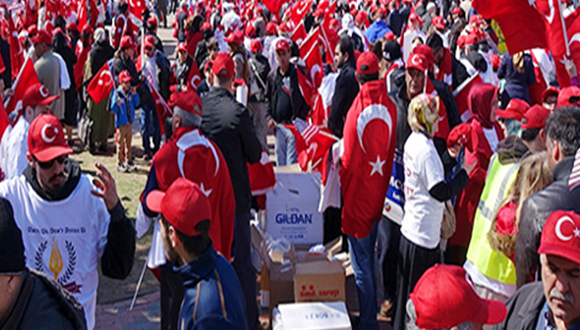כנס: Diaspora & Conflict Resolution
17 במאי 2018, 15:00 - 18:30
בניין נפתלי, חדר 203 ו-527
Room 203 - 15:00-16:40
Greetings by Prof. Itai Sened, Head of the School of Social and Policy Studies and of the Boris Mints Institute for Strategic Policy Solutions to Global Challenges
Chair: Dr. Nimrod Rosler, Tel Aviv University, Israel
Opening lecture: Prof. Yossi Shain, Tel Aviv University, Israel
“Diaspora and ethnic conflicts – Three decades of research”
First Panel
Prof. Thomas Morton, Exeter University, UK
“Dilemmas of minority identity: Pursuing equality while maintaining differences”
Prof. Rhiannon Turner, Queen’s University, Belfast, UK
“The role of intergroup contact and its underlying mechanisms on intergroup relations among diaspora”
Prof. Gilad Hirschberger, IDC, Herzliya, Israel
“How does existential threat effect political conflict?”
16:40-17:00: Coffee Break
Room 527 - 17:00-18:30
Second Panel
Dr. Nurit Shnabel, Tel Aviv University, Israel
“Addressing the Psychological Needs of Conflicting Parties as a Key to Promoting Reconciliation: The perspective of the Needs-based Model”
Prof. Clifford Stevenson, Nottingham Trent University, UK
“New places for co-existence? The challenges facing group members relocating to mixed neighborhoods in Northern Ireland (and how to overcome them)”
Dr. Masi Noor, Keele University, UK
Speaker Bios
Gilad Hirschberger is Associate Professor of social and political psychology at the Baruch Ivcher School of Psychology, IDC Herzliya. His research focuses on existential threat and examines how threats that range along the dimensions of personal-collective, physical-symbolic, and past oriented-future oriented, have differential influences on attitudes towards peace and conflict. His research places a specific emphasis on the long-term effects of collective historical trauma and examines the implications of trauma for both victim and perpetrator groups. His new book with Tsachi Ein-Dor “The Psychology of Threat: From Psychophysics to Politics” is forthcoming in Cambridge University Press.
Thomas Morton completed a PhD at the University of Queensland, Australia, before moving to the United Kingdom in 2004. He is currently an Associate Professor of Social Psychology at the University of Exeter, UK, and an Associate Editor of the British Journal of Social Psychology. His research interests include group processes, intergroup relations, self and identity, and identity expression, especially as they relate to membership in minority and stigmatised groups. His other interests include the connections between physical environments and identity processes, and the role of social factors in shaping individual health and well-being.
Masi Noor is a social psychologist and faculty member of the School of Psychology at Keele University, UK. His main line of research is examining the role of victimhood in the process of conflict resolution. He has conducted research and worked with different groups across divided societies, including Northern Ireland, Chile, Palestine/Israel, etc. He has just published his new book Forgiveness Is Really Strange, a graphic comic based on scientific research and real-life stories. He is a trained community conflict mediator and uses a participatory and interactive approach to training others.
Nimrod Rosler is a lecturer (tenure-track) in the Evens Program in Conflict Resolution and Mediation, Department of Public Policy at Tel Aviv University. Previously a Visiting Israel Professor at the University of Kansas, he completed his PhD at the Hebrew University of Jerusalem. His research interests include various aspects of intergroup conflict resolution: conflict-related diaspora communities, gender, political and psychological dynamics of intractable conflict, and leadership in conflict and peacemaking.
Yossi Shain is the Romulo Betancourt Professor of Political Science at Tel Aviv University, the head of the Aba Eben Program of Diplomacy and co-chair of the MA Program in Political Leadership. He is also a Full Professor of Comparative Government and Diaspora Politics at Georgetown University and the Founding Director of the Program for Jewish Civilization. He is the author and editor of eight books and published dozens of articles in leading journals. He was acknowledged as one of the leading political scientist in Israel and was defined in the US as "one of leading scholars in the world in the research of diasporas.”
Nurit Shnabel is an experimental social psychologist and currently serves as a senior lecturer in the School of Psychological Sciences at Tel-Aviv University. Her research aims to identify social psychological processes that contribute to the improvement of social relations under the premise that harmonious social relations between individuals or groups require mutual trust, secure social identities, and an equality-based social environment.
Clifford Stevenson is an Associate Professor at Nottingham Trent University where he leads the Groups, Identities and Health research cluster. His research examines how groups shape the social reality of their members and provide them with the ability to respond collectively to adversity and challenges. He currently leads a programme of research into the experiences of residential contact in divided societies, examining how intragroup processes within neighbourhoods can help residents cope with the challenges of migration and community diversification.
Rhiannon Turner is a Professor of Social Psychology at Queen’s University Belfast. Her research looks at which forms of intergroup contact best reduce prejudice, how and why they do so, and what consequences they have for intergroup relations. In particular, she has studied the cross-group friendship, extended contact, and imagined contact. She is also interested in the role of personality


